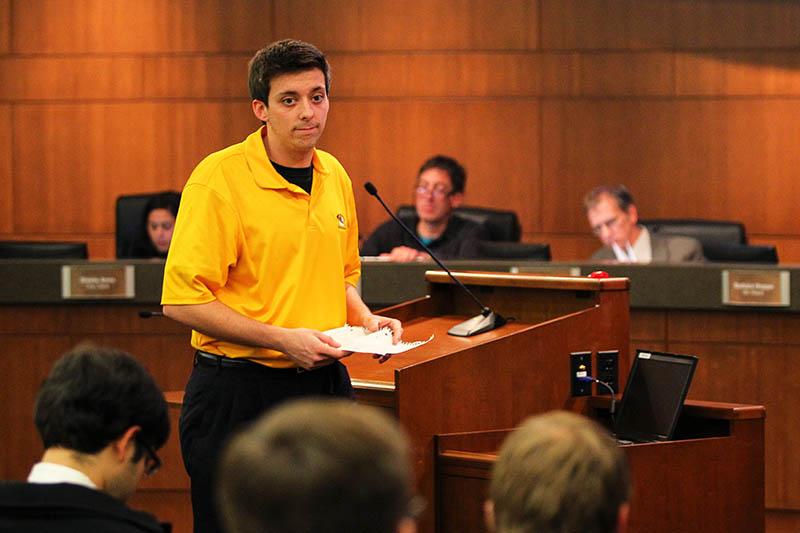As states around the country consider whether or not to legalize the use of marijuana, Columbia might soon hear a similar debate on the issue.
Residents asked City Council to expand the city’s ordinances to allow the cultivation of a small number of plants during public comment at Monday night’s meeting.
Columbia attorney Dan Viets, speaking on behalf of the Missouri Civil Liberties Association, asked the council members to consider amending the city’s ordinances on marijuana to better reflect the changing sentiments of the community on the issue of cannabis regulation.
Columbia already relaxed city laws on marijuana to make marijuana enforcement “the lowest law enforcement priority.” The measure passed with more than 60 percent of the citizen vote in a 2004 measure.
Meanwhile, on the national level, 58 percent of Americans said they support the legalization of the substance, a 10 point increase since last year, according to a recent Gallup poll.
In Missouri, marijuana arrests constituted more than 50 percent of all drug arrests and equated to more than $49.1 million spent enforcing marijuana possession laws in 2010, as cited in a June 2013 report by the American Civil Liberties Union. Amending Columbia’s ordinances would reduce city spending on marijuana related offenses, Viets said.
In his testimony to the council, Viets argued that relaxing the city’s ordinances to allow for “personal use cultivation” of the drug could diminish incidents of violence associated with the illegal trade of marijuana by reducing their need for drug dealers.
“The money in marijuana is the root of all evil,” Viets said. “We will have the potential to reduce the violence associated with the money in the present black market trade of cannabis.”
Systemic violence related to the illicit trade of marijuana is small relative to the violence associated with other drugs, according to a 2003 study by the National Bureau of Economic Research on the connection between marijuana and crime.
Viets maintained that encompassing marijuana laws under city ordinances could bring other benefits. One of these would be allowing law officials to focus on other criminal issues instead of marijuana enforcement.
Toward the end of Viets’ public comment, nearly 30 individuals stood in the gallery to show their support for amending the city ordinances.
Senior Benton Berigan, who addressed the council speaking on behalf of the National Organization for the Reform of Marijuana Laws, argued that decriminalizing the cultivation of a small number of cannabis plants for personal use would eliminate the “gateway effect” that research has suggested leads marijuana users to harder drugs.
“There has been no evidence to suggest that a relationship between marijuana use and hard drugs,” Berigan said. “The fact that this is a criminal gateway leads to the usage of other harder drugs.”
The council did not address the city ordinances regarding marijuana enforcement because the issue was not on the official agenda.







